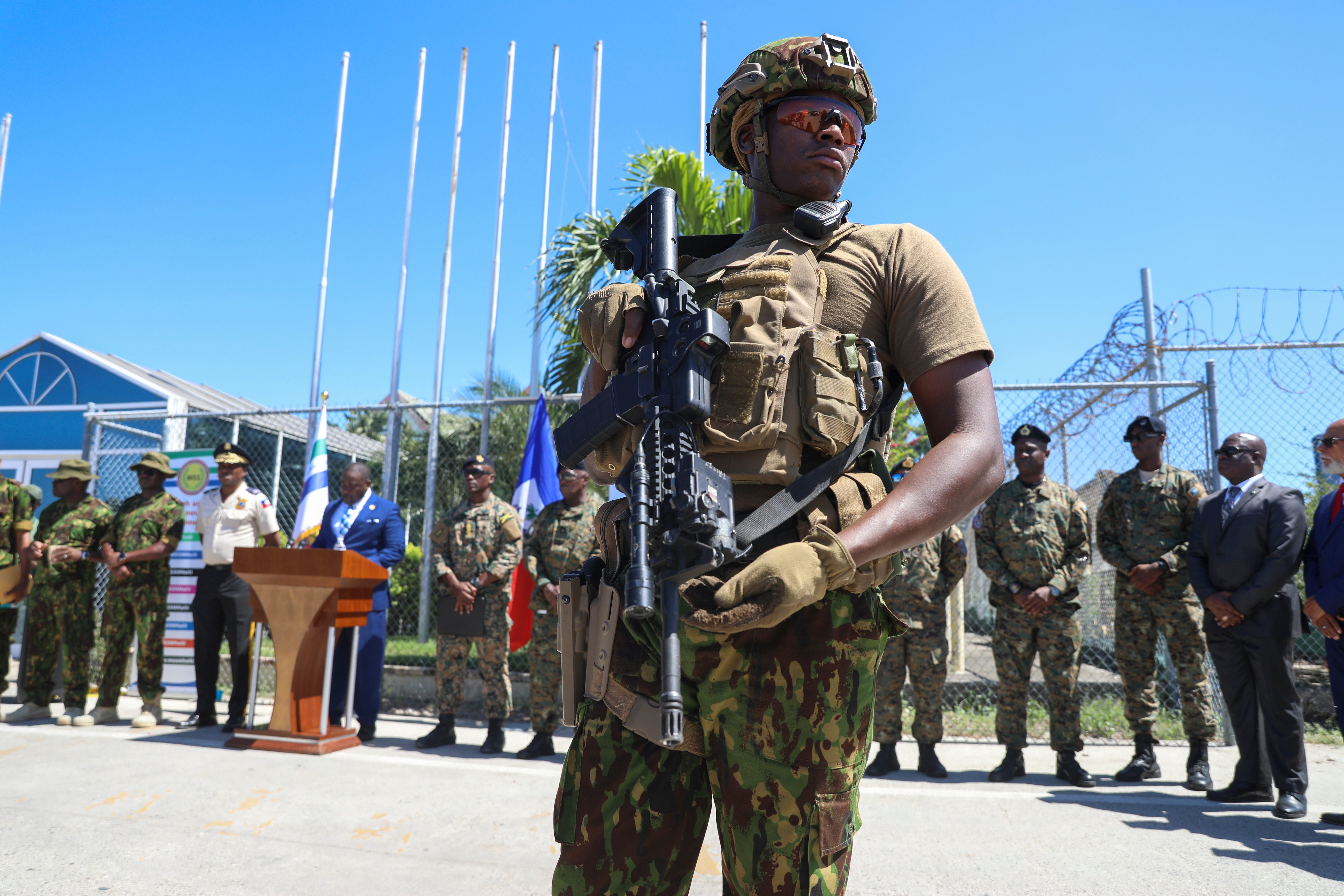US steps up campaign to transform Kenya-led force in Haiti to a UN peacekeeping force
The United States has stepped up its campaign to transform the Kenya-led multinational force in Haiti into a U.N. peacekeeping force, spurred by escalating gang violence that shut all air traffic to the capital Port-au-Prince this week

Your support helps us to tell the story
From reproductive rights to climate change to Big Tech, The Independent is on the ground when the story is developing. Whether it's investigating the financials of Elon Musk's pro-Trump PAC or producing our latest documentary, 'The A Word', which shines a light on the American women fighting for reproductive rights, we know how important it is to parse out the facts from the messaging.
At such a critical moment in US history, we need reporters on the ground. Your donation allows us to keep sending journalists to speak to both sides of the story.
The Independent is trusted by Americans across the entire political spectrum. And unlike many other quality news outlets, we choose not to lock Americans out of our reporting and analysis with paywalls. We believe quality journalism should be available to everyone, paid for by those who can afford it.
Your support makes all the difference.The United States has stepped up its campaign to transform the Kenya-led multinational force in Haiti into a U.N. peacekeeping force, spurred by escalating gang violence that shut all air traffic to the capital of Port-au-Prince this week.
The U.S. proposed a U.N. peacekeeping mission in early September as one way to secure regular funding for the U.N.-backed multinational force that is trying to help Haiti’s national force control the gangs which faces a serious funding crisis.
Since then, the gangs have intensified their attacks, with violence exploding last Sunday in the capital when Haiti’s transitional council created to restore democratic order fired the interim prime minister amid political infighting. The gangs, now estimated by the U,N, to control 85% of the capital, shut down the country’s main airport there on Monday after shooting a number of planes, wounding one flight attendant.
The United States tried to get all 15 members of the U.N. Security Council to sign off on a draft resolution this week that would start the wheels rolling to transform the Kenya-led force. It asks U.N. Secretary-General Antonio Guterres “to undertake expeditiously contingency preparations and planning” tor a transformation, which would take many months to accomplish.
The U.S. set a deadline Thursday for objections to the draft resolution, and two diplomats said Russia and China, which have publicly raised concerns about moving to a U.N. force, refused to give a green light.
Russia said it wanted an open Security Council briefing from the U.N. Secretariat followed by closed council consultations on the latest situation in Haiti -- and that has been scheduled for Wednesday afternoon, the diplomats said, speaking on condition of anonymity because contacts have been private.
The force was supposed to have 2,500 international police but the head of the U.N.’s political mission in Haiti, Maria Isabel Salvador, told the council late last month that just around 430 are deployed -- some 400 from Kenya and the rest from the Bahamas, Belize and Jamaica.
Last month, Kenya’s President William Ruto said another 600-strong contingent would be sent to Haiti in November.
Salvador said the U.N. trust fund that finances the multinational force and relies on voluntary contributions, “remains critically under-resourced, which could impact deployment and impede it from carrying out its tasks in support of the Haitian National Police.”
The U.N. said Friday that the trust fund has received $85.3 million of the $96.8 million pledged. The United States agreed to contribute $300 million to the multinational force.
But that’s still far below the $600 million cost to deploy a 2,500-strong force for a year, according to the Security Council. And whether President-elect Donald Trump’s incoming administration would continue voluntary funding for a multinational force remains in question.
The power of gangs in Haiti has grown since the 2021 assassination of President Jovenel Moïse. The surge in killings, rapes and kidnappings has led to a violent uprising by civilian vigilante groups.
Haiti’s leaders have asked for a U.N. peacekeeping force, and the U.S. draft resolution notes that the permanent council of the Organization of American States adopted a resolution on Nov. 13 entitled “In Support of Haiti’s Request for a United States Peacekeeping Operation.”
The arrival of the first Kenyans in June marked the fourth major foreign military intervention in Haiti.
While some Haitians welcomed them, others view the multinational force and the possibility of a new U.N. peacekeeping force with extreme caution.
Since the early 1900s, there have been at least three major foreign military interventions in Haiti led by the United States and the United Nations.
The most recent U.N. peacekeeping mission from 2004-2017 was marred by allegations of sexual assault and the introduction of cholera, which killed nearly 10,000 people.